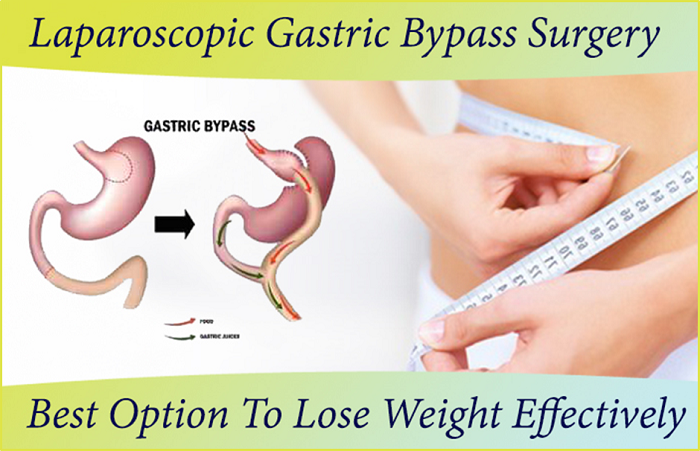Overview
Gastric bypass is a surgery that encourages you gets in shape by changing how your stomach and small intestine handle the food you eat.
After the bypass surgery, your stomach will be smaller. You will feel full with less food. The food you eat will never again go into certain parts of your stomach and small digestive system that retain food. Along these lines, your body won’t get all of the calories from the food you eat. The littler pouch of the stomach is then associated with the small intestine, consequently bypassing the bigger pouch. This technique brings about weight loss by limiting the measure of food admission and the number of nutrients consumed from the gut. These days, this surgery is performed by utilizing a laparoscope (a tiny camera) and named as ‘laparoscopic gastric bypass surgery’.

Who Is The Best Candidate For Laparoscopic Gastric Bypass Surgery?
Generally, gastric bypass and other weight-loss surgeries could be a possibility for you if:
- Body mass index (BMI) of a person should be 40 or higher (extreme obesity).
- Your BMI is 35 to 39.9 (obesity), and you have a genuine weight-related health problem, for example, type 2 diabetes, hyper blood pressure or serious rest apnea. In some cases, you may meet all requirements for particular sorts of weight loss surgery if your BMI is 30 to 34 and you have genuine weight-related health problems.
But laparoscopic gastric bypass surgery isn’t for everybody who is severely overweight. You may need to meet certain medical guidelines to fit the bill for weight loss surgery. You likely will have a broad screening procedure to check whether you qualify.
You should likewise be willing to roll out permanent changes to lead a more beneficial way of life. You might be required to participate in long term follow-up plans that incorporate monitoring your nutrition, your lifestyle and behavior, and your medical conditions.
Why Laparoscopic Gastric Bypass Is The Best Weight Loss Surgery?
Laparoscopic gastric bypass surgery, the most commonly performed surgery for obesity in the U.S., seems to enable patients to lose more weight and may treat diabetes more viably than newer techniques, two studies appear. You will lose a lot of weight quickly in an initial couple of months after laparoscopic gastric bypass. Although this is something you are anticipating, it is significant that you lose this weight in a healthy way to stay away from side effects, for example, fatigue and hair loss. While it is a complex surgery with noteworthy risks, patients have historically would do well to results with an absolute weight loss, long term weight maintenance and improved overall health than the individuals who have opted for some other kind of weight loss surgery.
How Many Calories A Day Do You Eat After Gastric Bypass?
It is significant that you follow the dietary proposals given to you by your dietician. Your chance of achieving your weight-loss objectives is enhanced if you follow our Bariatric program after surgery. Promptly following surgery, you will start with a clear fluid diet. You may step by step start adding thicker fluids to your diet after you are released from the medical clinic. For the initial two months following surgery, your calorie intake ought to be somewhere in the range of 300 and 600 calories per day, with a focus on thin and thicker fluids. Daily caloric intake ought not to exceed 1,000 calories.